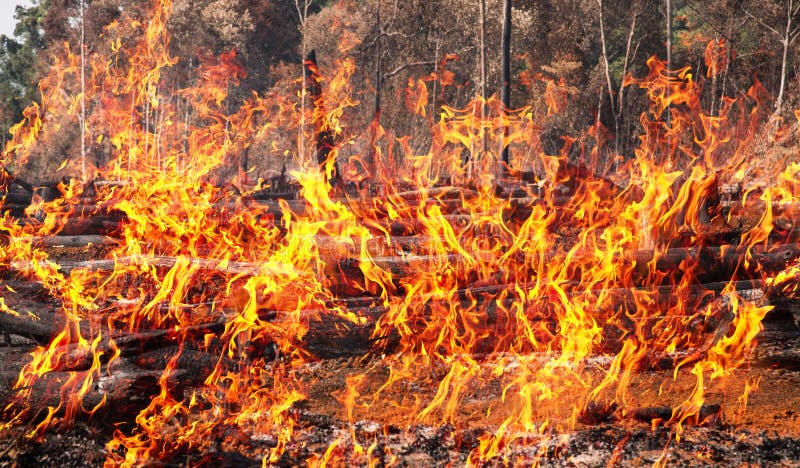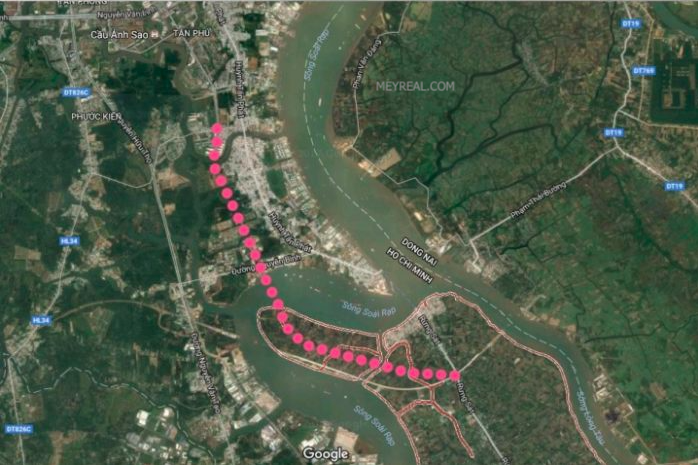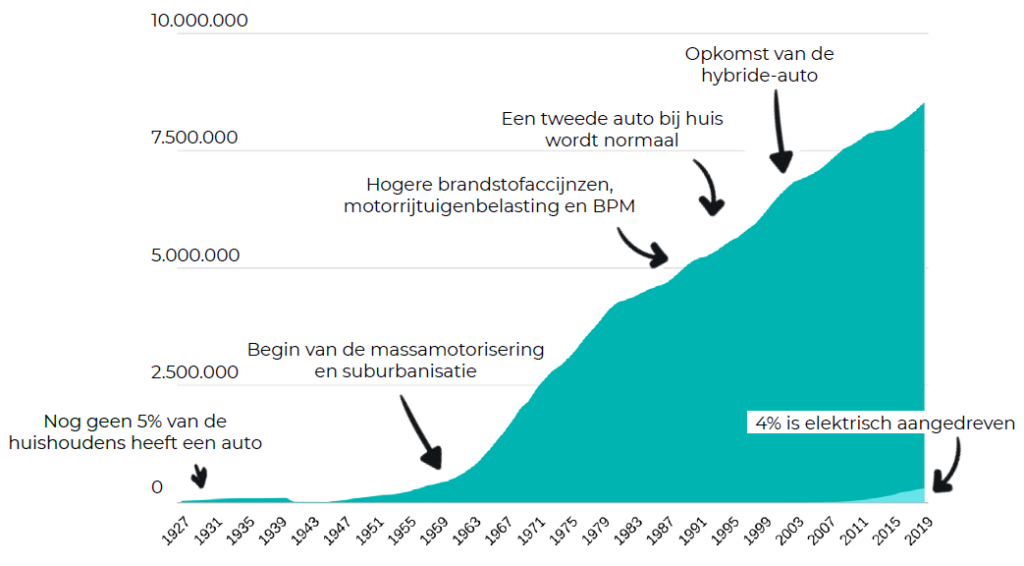Global Forest Loss: Wildfires Exacerbate The Crisis

Table of Contents
The Scale of Global Forest Loss and its Impact
Global deforestation is a severe environmental problem, with devastating consequences for our planet. Millions of hectares of forest are lost annually, impacting biodiversity, climate change, and the livelihoods of countless communities. The current rate of deforestation is unsustainable and poses a significant threat to the health of our planet.
- Specific statistics on global forest loss: According to the Global Forest Watch, the world lost 10 million hectares of tree cover in 2021. (Source: Global Forest Watch). This equates to a staggering loss of approximately 27,000 hectares per day. The Amazon rainforest, the Congo Basin, and Southeast Asia are among the regions experiencing the most significant deforestation.
- Impact on biodiversity: Forest loss leads to habitat destruction and fragmentation, driving species extinction and threatening biodiversity worldwide. The loss of these crucial ecosystems disrupts the delicate balance of nature and impacts countless species, many of which are yet undiscovered.
- Contribution to climate change: Forests act as vital carbon sinks, absorbing atmospheric carbon dioxide. Deforestation releases this stored carbon, contributing significantly to greenhouse gas emissions and accelerating climate change. Reduced carbon sequestration further exacerbates the problem, creating a positive feedback loop.
- Social and economic impacts on local communities: Indigenous communities and local populations who depend on forests for their livelihoods are disproportionately affected by deforestation. Loss of access to resources, displacement, and decreased economic opportunities are common consequences. This can lead to social unrest and migration.
Wildfires as a Major Driver of Forest Loss
Wildfires are playing an increasingly significant role in accelerating global deforestation. Climate change, coupled with human activities, is contributing to the increased frequency and intensity of these devastating events.
- Increased frequency and intensity of wildfires due to climate change: Rising global temperatures, prolonged droughts, and changing weather patterns create ideal conditions for wildfires to ignite and spread rapidly. Longer and hotter summers exacerbate the risk.
- Human activities contributing to wildfires: Deforestation, land clearing for agriculture and development, and careless use of fire (e.g., unattended campfires, agricultural burning) are major causes of wildfires. These activities often remove natural barriers and leave dry vegetation vulnerable to ignition.
- Examples of recent devastating wildfires: The 2019-2020 Australian bushfires, the 2021 Northwest Pacific wildfires, and the ongoing Amazon rainforest fires are stark examples of the scale and devastating impact of these events on forest ecosystems. These disasters released massive amounts of carbon dioxide into the atmosphere.
- The role of peatlands in exacerbating wildfire intensity and longevity: Peatlands, which store vast amounts of carbon, are particularly vulnerable to wildfires. Once ignited, these fires can burn underground for extended periods, releasing significant amounts of greenhouse gases and making suppression extremely difficult.
The Feedback Loop Between Deforestation and Wildfires
Deforestation and wildfires are locked in a dangerous feedback loop. Deforestation creates conditions that make wildfires more likely and more severe, which in turn leads to further deforestation.
- Dry vegetation increases flammability: The removal of trees and undergrowth leaves behind dry, flammable vegetation, creating fuel for wildfires.
- Fragmentation of forests creates more ignition points: Isolated patches of forest are more susceptible to ignition, as natural barriers are removed.
- Loss of natural firebreaks: Intact forests act as natural firebreaks, slowing the spread of wildfires. Deforestation removes these barriers, allowing fires to spread more easily and rapidly.
Combating Global Forest Loss and Wildfires
Addressing global forest loss requires a multi-faceted approach focusing on prevention, mitigation, and restoration. International cooperation and community involvement are crucial for success.
- Sustainable forestry practices: Implementing sustainable logging techniques, reducing reliance on unsustainable practices, and promoting responsible forest management are essential. Certification schemes play a key role in ensuring the sustainability of forestry operations.
- Improved forest fire management and prevention techniques: Early detection systems, controlled burns (where appropriate), and improved firefighting capabilities are crucial for minimizing the impact of wildfires. Investing in prevention is far more cost-effective than fighting fires.
- Reforestation and afforestation projects: Planting trees in deforested areas and establishing new forests helps restore ecosystems, sequester carbon, and reduce the risk of wildfires.
- International cooperation and policy changes: Global agreements and policies are needed to address the drivers of deforestation and wildfire, promoting sustainable practices and holding countries accountable.
- Community involvement and education: Empowering local communities, providing them with resources, and educating them about the importance of forest conservation is vital for long-term success.
The Economic and Social Costs of Inaction
Inaction on global forest loss carries substantial economic and social costs, far outweighing the investment needed for preventative measures.
- Economic losses due to decreased timber production and ecosystem services: Loss of forests impacts timber production, reduces the provision of ecosystem services (e.g., clean water, pollination), and increases the costs of disaster recovery.
- Increased costs of disaster relief and recovery efforts: The costs associated with fighting wildfires, providing disaster relief, and rebuilding communities after devastating fires are enormous.
- Displacement of communities and loss of livelihoods: Wildfires and deforestation displace communities, leading to the loss of homes, livelihoods, and cultural heritage.
- Long-term impacts on human health and well-being: Air pollution from wildfires poses serious health risks, while the loss of forests impacts access to clean water, food, and other essential resources.
Conclusion
The alarming rate of global forest loss, significantly exacerbated by devastating wildfires, demands immediate and decisive action. The interconnectedness of deforestation and wildfires creates a dangerous positive feedback loop. We must implement sustainable forestry practices, improve fire management techniques, invest in reforestation, and foster international cooperation to effectively combat this crisis. The economic and social costs of inaction far outweigh the investment needed for preventative measures. Let's work together to prevent further global forest loss and build a more sustainable future. Learn more about how you can help prevent global forest loss and support reforestation efforts.

Featured Posts
-
 Understanding The Sound Perimeter Musics Unifying Force
May 22, 2025
Understanding The Sound Perimeter Musics Unifying Force
May 22, 2025 -
 Une Navette Gratuite Entre La Haye Fouassiere Et Haute Goulaine Essai En Cours
May 22, 2025
Une Navette Gratuite Entre La Haye Fouassiere Et Haute Goulaine Essai En Cours
May 22, 2025 -
 Thong Tin Du An Cau Ma Da Khoi Cong Thang 6 Ket Noi Dong Nai Binh Phuoc
May 22, 2025
Thong Tin Du An Cau Ma Da Khoi Cong Thang 6 Ket Noi Dong Nai Binh Phuoc
May 22, 2025 -
 Oplossen Online Betalingsproblemen Bij Abn Amro Opslag
May 22, 2025
Oplossen Online Betalingsproblemen Bij Abn Amro Opslag
May 22, 2025 -
 Toenemend Autobezit Stuwt Occasionverkoop Bij Abn Amro
May 22, 2025
Toenemend Autobezit Stuwt Occasionverkoop Bij Abn Amro
May 22, 2025
